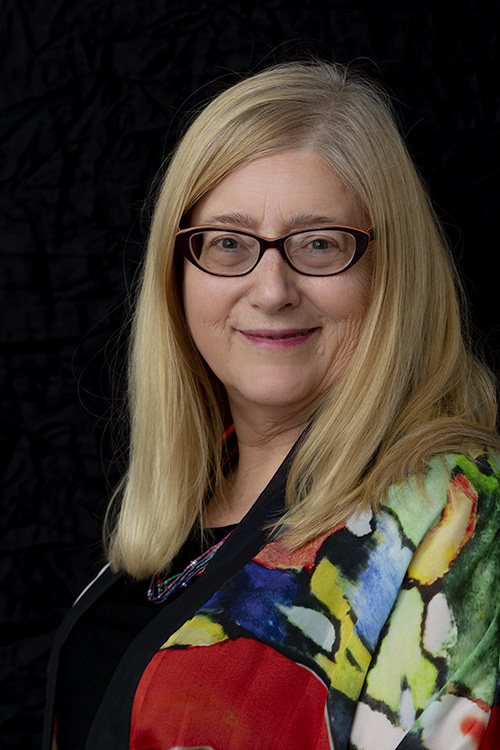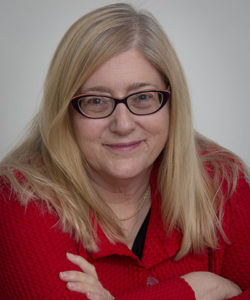Retirement Till the End
Retirement is a lovely vacation that ends in death. Our exhilaration when we first retire is tempered by how it will end.
Back when I was working, if I had two weeks off, I reveled in the first week and spent the second week dreading the return to the office. Even then I knew that was absurd. Why not enjoy it all? And I don’t want to do that again: Dreading the end of this lovely retirement vacation rather than immersing myself in the magic of each day.
Which reminds me of another till-death-do-us-part experience. Each night of the week before I married, I dreamed I was making love with a different man. Beautiful men, imaginary men, in the most romantic settings: On the beach, in a hot air balloon, on a linen-clad table in a private dining room. Marriage terrified me. “Till death do us part” meant I was already with the last man I would ever make love to. Somehow that made death seem more imminent (Things did not turn out that way; the marriage produced wonderful children but did not last).
After I quit my last full-time job, I kept dipping my toe in consulting, partly because money is nice and partly because I did not want to face the finality of this lovely vacation. But consulting lacks the appeal of a tryst with a handsome man. I may really be finished with consulting; I’ve grown intolerant of corporate bullshit.
So, then, mortality. Retirement till the end.
I’ve never been sanguine about death. I spent much of my sixties counting the difference between my current age and the lifespans of my closest female relatives. I consoled myself that my remaining years were longer than the entire life of a woman in the Middle Ages. But American lives are shorter now, thanks to the impact of COVID on healthcare. And my health is not what it was when I was sixty (What is the zip code of the state of denial?).
Making sense of death is complex. The idea that one’s consciousness will vanish—poof—is hard to fathom, even if you have sat with the dying, even if you have undergone surgery where your consciousness was suspended for hours. Yet I have no quarrel with the fact that I did not exist before I was born. Why should death seem any different?
There is a wonderful scene in The Lion in Winter when Katherine Hepburn as an aging Katherine of Aragon and Peter O’Toole as an aging Henry II ponder the nature of life and death. They compare life to a lost bird that flies out of darkness through the open window of a great hall, passes through the light for a moment, then flies through the opposite window and back into darkness. Philosopher George Yancy (author of Backlash: What Happens When We Talk Honestly About Racism in America) put it this way: “I feel trapped between two infinities of meaninglessness.”
Even so, there are ways to find meaning. I have a cousin in her mid-nineties who sent the most wonderful holiday card in 2021, replete with pictures of her great-grandchildren. She thinks of faith as the comfort of earlier generations; her comfort is in these children, in the chain of life over the centuries. This is what matters, she wrote in her card, these precious children, and their future.
That is the crux of it: To find what matters for each of us as we confront the mystery of time and the majesty of death.
Professor Yancy recently published a series of interviews with philosophers and theologians in the New York Times. Each scholar he interviewed had a different idea about what matters in the face of mortality, grounded in each of their traditions.
- Geshe Dadul Namgyal, a Tibetan Buddhist monk , said that self-obsession and the insistence on seeing ourselves as separate from the universe is the root of our fear. Instead, like my cousin, we can see ourselves as part of the continual process of regeneration in the universe. If we accept that change is constant, we can make the most of the present.
- Moulie Vidas, a professor of Judaic studies, traced the complex responses to death in Jewish texts. Two of the ideas he described were the sense that the individual life is part of a long, collective story; and embracing mortality as a portal to more fully embracing our finite lives.
- Karen Teel, a Christian theologian, believes that love continues, through everyone we have loved, long after we ourselves are forgotten. And she believes she will be reunited with her loved ones after death, including her mother, who died of ALS. During the interview, Dr. Yancy quoted Stephen Hawking, who also died of ALS, and who once said, “I regard the brain as a computer which will stop working when its components fail… There is no heaven or afterlife for broken down computers; that is a fairy story for people afraid of the dark.” Teel responded that even if we are not reunited, as love we live forever.
- Jacob Kehinde Olupona, a professor of African religious traditions at Harvard Divinity School, explained that in the Yoruba heritage, the spirit knows how long it will live on earth before he or she is born but loses that knowledge at birth. At death the spirit returns to that same otherworld, and the meaning of the person’s death depends on whether they fulfilled their purpose in life.
- Leor Halevi, a Muslim historian, said that in Muslim tradition, fragments of the self exist for as long as God maintains Heaven and Hell. And good works affect the decision God makes about the soul’s destination.
- Todd May, an atheist philosopher, resolves the paradox of finding meaning in a finite life by pursuing two parallel paths: On the one hand, making plans for projects that hold meaning, and on the other, living each day with the understanding that none of those plans may come to pass because today is the only day we can be sure of.
Studying these interviews, I felt part of a broader community now and across time, who grapple with these concepts. Feeling that connection helped me gain some serenity about mortality. Each of the interviews added to my sense of what it means to live each day in this life we are given.
I love the idea that the meaning of our death depends on whether we fulfilled our purpose. Defining our purpose is a task we revisit at each life stage, including when we retire.
Retirement Till the End?
As a writer, I love the idea that fragments of the self persist. In her classic text, Writing Down the Bones, Natalie Goldberg said we write because we want it to be known how we lived. When we write, we ride the universe as it moves through us.
As a partner and a mother, I love the idea that love persists even after we are gone, and even after we are forgotten.
As an egoist and neurotic, I applaud the ideas of accepting change, accepting the loss of control, and making plans that may be futile.
All this and more.
Two of Jack Kerouac’s precepts for writers were:
- Accept loss.
- Be in love with your life.
I hear those together as: Love this thing that we know will disappear. Love it fully, with a whole heart. The poet W.H. Auden enjoined us to dance till we drop. And what else can we do but dance, each to our own purpose, if we are to live each day of this last-in-a-lifetime, lovely vacation.
People say, don’t let the perfect be the enemy of the good. It is just as important not to let mortality be the enemy of the now. Instead let us make mortality the ally of the now. As Professor Yancy wrote, “Let the mutual recognition of our collective destiny make our time together even more precious.”



11 Responses
I’ve been wondering what others think of this ever-present state of waiting and hating it, hating to leave as John McCain put it after his cancer diagnosis. I panicked at 19 that this would happen sooner or later. I hoped it would wait at least until I had some children to carry on. i now have 50 descendants or so. But I realize now that I could still be forgotten, that they will never know the tiny moments of awakening as a toddler to Life Itself. How does that happen? When do we first realize that we are? And when do we finally realize we are about to cease to be? I can’t believe we do. There’s too much power in us, too much desire to go on.
Well, you’ve given me new ways to think about it. And it’s interesting to know I’m not alone.
My character Katherine is alone, except for her young daughter, Lily. And she’s dying, no doubt or delay about it. What does she do about Lily? That’s what the story explores. Her clever solution is not a good one.
Peg – It does seem like story is one way to preserve, as you put it so well, all that power in us, all that desire to go on. In her classic book “Writing Down the Bones,” Natalie Goldberg says we write because we want others to know how we lived. And of course, how we are living. There is more to come, each day. Thanks for writing!
A friend posted this wonderful, apt quote on social media:
“When you open yourself to the continually changing, impermanent, dynamic nature of your own being, you increase your capacity to love and care about other people and your capacity to not be afraid…..You develop an enthusiasm for no longer watering those negative seeds, from now until the day you die. And, you begin to think of your life as offering endless opportunities to start to do things differently.”
–Pema Chödrön
My first time here and I love this piece. I am in the healthcare field and facing death is a daily conversation with at least one or more patients. It is tiring and nerve racking somedays. I am a believer in the afterlife. But if I am honest my mind sometimes wonders what after life truly is. I hope it is as wonderful as I believe it to be. My biggest thing currently and since my own mother’s death is…what is my purpose??? I am still searching. Love your blog.
Thank you, Pam, for your heartfelt comment. My mother’s death brought up these issues for me as well. Thank you for your service in the healthcare field–you are my heroine. Sending you best wishes and strength.
I love this piece! It is beautifully written and has perhaps the most well thought out message of anything else that I have read about ‘Retirement’. It makes me think about how I can live the rest of my life to best fulfill my ‘Life’s Purpose’ however I have defined it! Bravo! This sounds like the beginning of a great new book!
Thanks so much, Steeviejane! We are all searching for our life purpose; maybe the search is the important thing. And, yes, these thoughts must find their way into the upcoming book!
Thanks Steevie! And here’s to our book in progress!
Beautiful blog! This discussion is so needed. As an atheist, I think often of transitioning from being to not being and it doesn’t frighten me. I only wish I could see the reactions of those I’ve known and loved after I’m gone. I’d like to be able to watch over my grandchildren and my other loves still living.
I admire your bravery, Mirinda, in your attitude toward “being” becoming “not being.” Would love to hear how you got there! Thank you for writing.
Hello Mirinda – I admire your attitude about not-being. Something for me to strive for! Thank you.